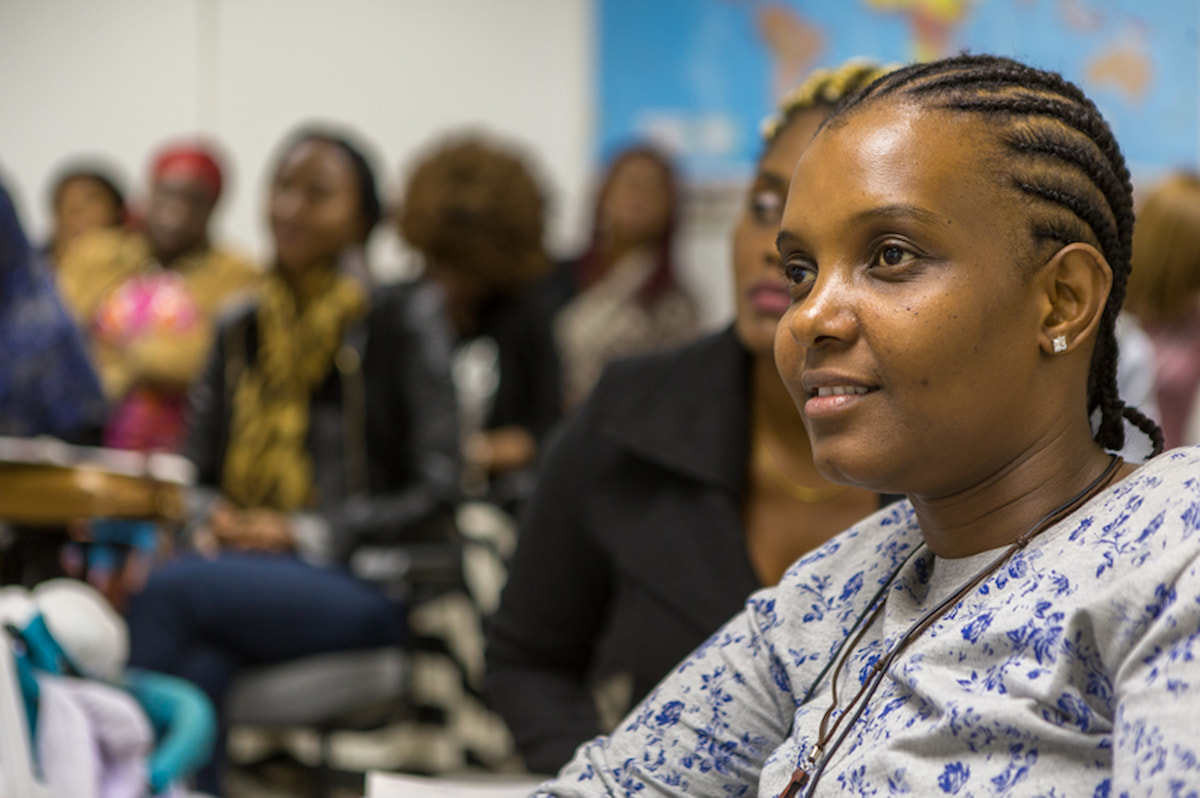With this consent, refugees will be able to access courses, scholarships, assistance services and renew their diplomas at the University
The State University of Maringá (Universidade Estadual de Maringá - UEM) is the first of the State Higher Education Institutions (Instituições Estaduais de Ensino Superior - IEES) and the second public university in Paraná to be approved by the Office of the United Nations High Commissioner for Refugees (Alto Comissariado das Nações Unidas para os Refugiados - ACNUR) to create the Sérgio Vieira de Mello Chair (Cátedra Sérgio Vieira de Mello - CSVM), an initiative set up by the United Nations (UN) in 2003 to promote education, research and academic extension aimed at the refugee population in Brazil.
The initiative has been guaranteeing refugees access to rights and services in the country through partnerships with public and private university institutions. The memorandum of understanding between UEM and the UNHCR will be signed in the next few days.
The director of the International Cooperation Office (Escritório de Cooperação Internacional - ECI), Professor Marcio Cassandre, responsible for the proposal sent to the UNHCR, conciders that this is another step towards consolidating higher education actions for refugees in our city and region. “UEM's participation in the group of universities linked to the Chair opens up dialogue with experiences already consolidated and possibilities of access to resources and exchanges of knowledge with new partners”, considers him.
For UEM’s rector, Leandro Vanalli, this approval by the UNHCR demonstrates that our university is active in fulfilling its three pillars: teaching, research and outreach. “Taking part in this important initiative is in line with UEM's social mission and its commitment to the Sustainable Development Goals (SDG). In this case, those relating to quality education and the reduced inequalities. We are very pleased with this partnership with UNHCR and several other universities in the country in favor of a noble common goal.”
Currently, CSVM is made up of 42 higher education institutions in 13 states and the Federal District. In Paraná, in addition to UEM, CSVM already included the Federal University of Paraná (Universidade Federal do Paraná - UFPR) and the private institution Centro Universitário Curitiba (UniCuritiba).
UEM starts its Sérgio Vieira de Mello Chair with the following actions to be implemented:
● Palestinian refugee reception program
● Reception program for Ukrainian scientists
● Expansion of the Portuguese as an Additional Language (Português como Língua Adicional - PLA) courses
● Offering places on undergraduate courses
● Renewing of diplomas
● Tutoring for students
● Offering of the Celpe-Bras Portuguese proficiency exam
● Welcoming of International Students Project
● Policy and Management Committee for Refugees and Migrants
● Permanent representation on the Human Rights Council
● Virtual Exchange and Global Skills
● Research and Outreach Projects about Refuge and Migration
● Food allowance
● Curricular internship - Professional training in the Psychology course
● Offer of the discipline: Psychology, Cultural Diversity and Migrations (taught by professors Eliane Domingues and Regiane Cristina de S. Fukui)
The action plan aims to ensure the continuity and expansion of the services provided to refugees, promoting their integration and well-being in society.
Sérgio Vieira de Mello Chair
The most recent figures from the Sérgio Vieira de Mello Chair (CSVM) indicate a significant growth in access to higher education by refugees in Brazil. Between 2022 and 2023, the Chair facilitated the entry of more than 660 refugees into higher education institutions, of which 613 are undergraduate students, 39 are master's and 12 PhD students. This number represents a 30% increase compared to the previous period, when 496 people were assisted.
In addition, 154 diplomas for refugees and stateless persons were renewed; 962 specific specific vacancies were offered to refugees on undergraduate courses and 1,800 refugees were supported with Portuguese courses. In terms of outreach, more than 6,300 legal consultations and around 580 health assistance for this population were carried out.
The Chair also maintains 52 research groups focused on issues related to forced displacement, involving 762 researchers across the country.
In addition to disseminating university teaching on issues related to International Refugee Law, the Sergio Vieira de Mello Chair also aims to promote academic training and the qualification of teachers and students on the subject. Working directly with refugees in outreach projects is also a top priority, as well as the process of entry and re-entry into universities through specific notices.
The project initiative was named “Sérgio Vieira de Mello” in honor of the Brazilian who died in Iraq in 2003 in an attack on the UN headquarters in that country, after spending much of his professional career working with refugees as an UNHCR official.
For more information, visit the UNHCR website.
Translated by: Felipe Piva Amorim
Proofread by: Felipe Lisbôa

